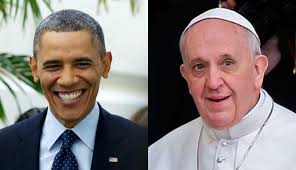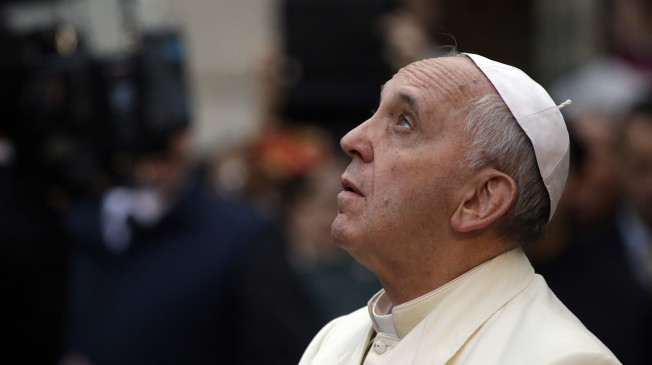 “It is no longer simply about exploitation and oppression, but something new…In this context, some people continue to defend trickle-down theories which assume that economic growth, encouraged by a free market, will inevitably succeed in bringing about greater justice and inclusiveness in the world. This opinion, which has never been confirmed by the facts, expresses a crude and naïve trust in the goodness of those wielding economic power and in the sacralized workings of the prevailing economic system. Meanwhile, the excluded are still waiting.”
“It is no longer simply about exploitation and oppression, but something new…In this context, some people continue to defend trickle-down theories which assume that economic growth, encouraged by a free market, will inevitably succeed in bringing about greater justice and inclusiveness in the world. This opinion, which has never been confirmed by the facts, expresses a crude and naïve trust in the goodness of those wielding economic power and in the sacralized workings of the prevailing economic system. Meanwhile, the excluded are still waiting.”
In his recent major encyclical, Evangelii Gaudium, Pope Francis calls out the obvious shenanigans that is trickle-down economics, and has some choice words for the financial sector:
“How can it be that it is not a news item when an elderly homeless person dies of exposure, but it is news when the stock market loses two points?” “This imbalance is the result of ideologies which defend the absolute autonomy of the marketplace and financial speculation…To all this we can add widespread corruption and self-serving tax evasion, which have taken on worldwide dimensions. The thirst for power and possessions knows no limits. In this system, which tends to devour everything which stands in the way of increased profits, whatever is fragile, like the environment, is defenseless before the interests of a deified market, which become the only rule.”
I already sung the praises of this Pope a few months ago, but it can’t be said enough: this Holy Father is such a breath of fresh air. His recent courage in this regard even encouraged our President to make his own quite-good speech about income inequality last week: “So let me repeat: The combined trends of increased inequality and decreasing mobility pose a fundamental threat to the American Dream, our way of life, and what we stand for around the globe.”
Unfortunately — like Obama’s Osowatomie speech in 2011 and his election night speech in 2012 — this seems to be just another example of Obama’s rhetorical tourism on the progressive front. He’s talked a good game — on the occasions when he’s not hippie-punching or parroting Third Way — for close to five years now. But where’s the action to back this rhetoric up? After years of his touting grand bargains and deficit hysteria and allowing sequestration, and looking at the emerging budget deal, I’m not holding my breath. Whatever happens the next three years, it’s already past clear that the tremendous, once-in-a-generation opportunity granted to Obama in 2008 to effect real and positive change has, unfortunately, been wasted.
Update: Pope Francis is TIME’s Person of the Year. A worthy choice, though I would’ve probably have gone with Edward Snowden.



